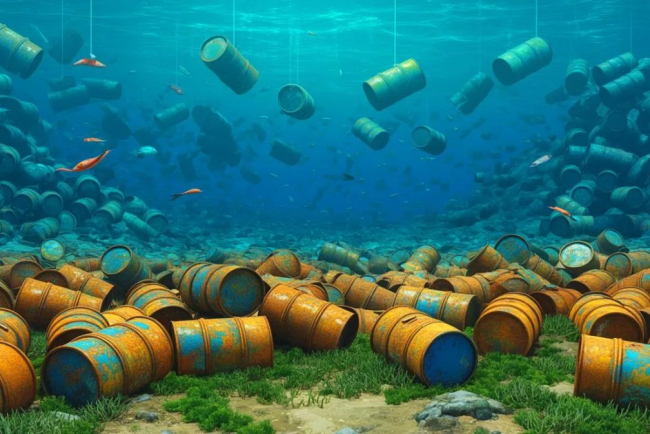World Water Day Highlights the Need for Freshwater Conservation and Sustainable Management
World Water Day emphasizes the importance of freshwater conservation and sustainable water management. With rising water scarcity and pollution, experts advocate for responsible water use, technological advancements, and policy reforms to protect global water resources.

March 22 is observed as World Water Day, a day of global observation and awareness regarding freshwater and sustainable water management. Due to increasing population, industrialization, and climate change, water scarcity has become a new concern globally. The day reminds us that freshwater resources are limited and must be preserved in order to attain long-term water security for future generations. Governments, civil society, and societies use this event to present effective measures for the consumption of water, conservation measures, and new technologies for better water management.
Human beings, agriculture, industry, and flora and fauna need water. Contamination, over-abstraction, and ineffective control have resulted in decreasing freshwater resources in large parts of the world. Rivers, lakes, and water storage in ground are being exploited at unsustainable levels, resulting in reduced availability of water as well as water of poor quality. Urbanization and industrialization have also resulted in additional pollution, and safe drinking water has emerged as a highest priority in numerous regions, particularly in developing nations. Water sustainability aims at addressing these issues through policy implementation to regulate the use of water, prevent pollution, and ensure conservation practices.
The most critical subject on World Water Day is proper use of water in agriculture, the largest consumer of freshwater. Traditional irrigation procedures have a tendency to cause immense wastage of water, reducing groundwater and the overall supply of water. Techniques such as drip irrigation, rainwater collection, and treatment and reuse of wastewater can make water use more efficient and reduce stress on water. Supporting farmers to adopt more advanced irrigation methods and precision agriculture is likely to maximize the use of water while maintaining high production levels.
Industrial use of water is the other equally crucial aspect of sustainable water consumption. A number of industries require large amounts of freshwater to facilitate manufacturing processes, thus exerting huge pressure upon natural water resources. Strategies that involve recycling units of water, reduce industrial discharge, and wastewater treatment prior to discharge into nature can stop harm done to the environment. Regulating bodies and the government must implement stringent policies for monitoring industries and adopting practices for water sustainability.
Climate change also accelerated water shortages by altering the distribution of rain, with a greater frequency of droughts and reduced freshwater supply. Global warming resulted in glacial melting, one of the most important freshwater sources for a majority of places. With precarious weather conditions, countries will require expenditures on reservoirs of water, flood-controlling systems, and drought-resistant vegetation to absorb the varying volumes of water. Deploying climate resilience strategies into policy for water management is critical in the quest for long-term sustainability.
Use of technology for water conservation has been growing, with technologies such as AI-driven water monitoring systems, smart irrigation techniques, and water desalination plans making valuable contributions towards ensuring sustainable water utilization. Digital technologies have the ability to aid in monitoring water consumption, leakage detection, and overall improvement in efficiency within water supply networks. Research and development spending in these technologies can support efforts worldwide in combating water scarcity.
Public education and community involvement play a very important role in the achievement of water conservation goals. Minor measures such as the reduction of wastage of water, fixing leaks, fitting water-conserving appliances, and collecting rainwater can all go a long way together. Schools, businesses, and housing complexes need to adopt judicious use of water to drive overall conservation activities forward. Governments and NGOs make a practice of mounting campaigns on World Water Day to raise people's awareness about the necessity for conserving water and induce behavior change leading towards sustainability.
World Water Day serves as a useful reminder of conserving and utilizing freshwater resources sustainably. In view of the mounting global problems such as pollution, climate change, and over-exploitation, concerted effort must be exerted to usher water security to all. Improving policy, adopting advanced technology, and introducing sustainable practice at the industrial and personal level can be a way to conserve freshwater resources for future generations. Not only is sustainable water management an ecological necessity, but it also constitutes an essential engine for economic growth, food security, and overall welfare.
What's Your Reaction?
















